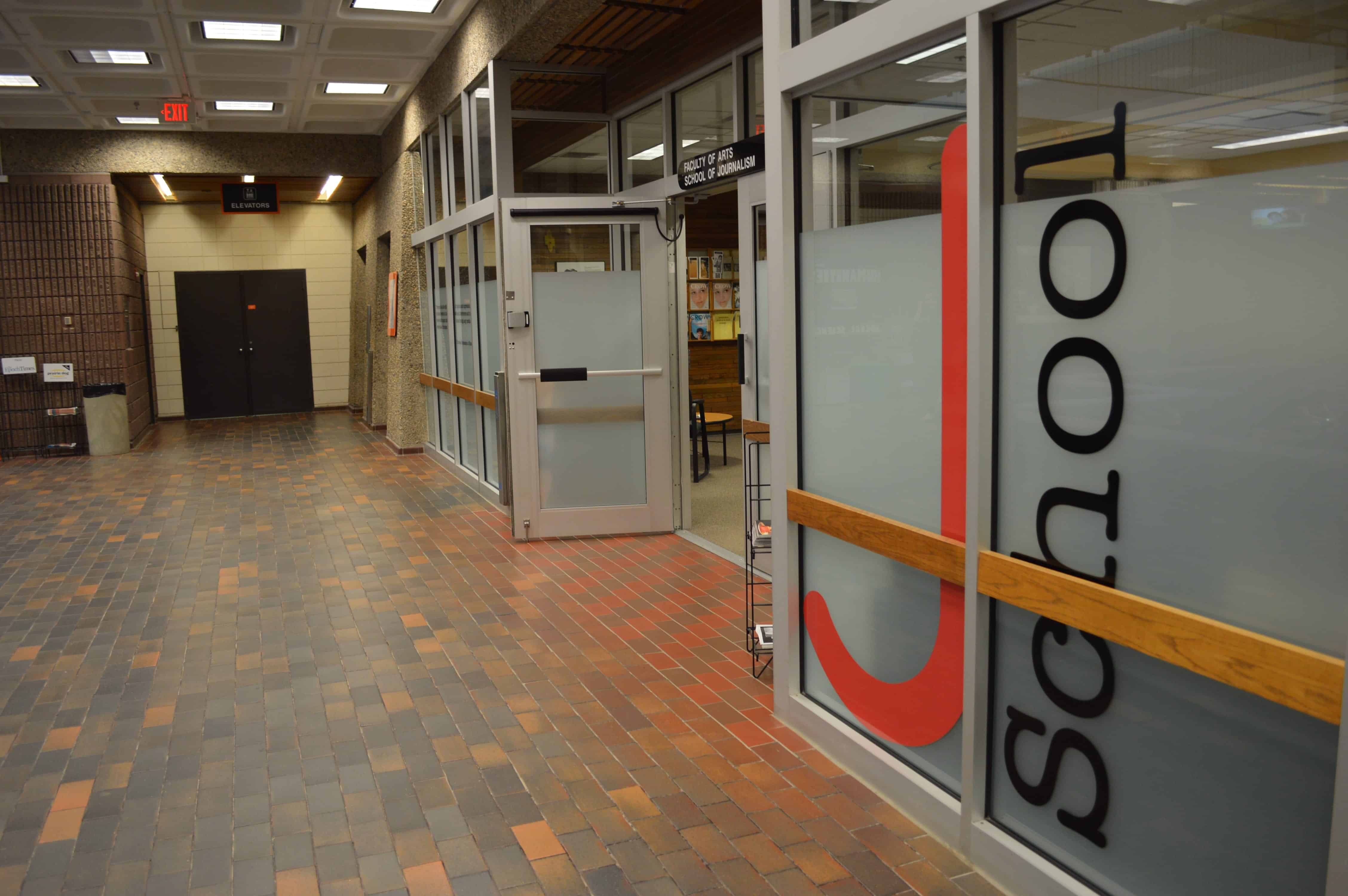Question authority!

Masters of Journalism coming to the U of R
In the current atmosphere of austerity on-campus, the journalism school is expanding while many programs are contracting or disappearing altogether. A masters of journalism is slated to begin in the fall semester of 2015.
“We have been diverted and delayed in our pursuit of this program by years because of the climate of austerity. We have, of course, suffered our own cuts and our colleagues in other departments have also suffered from cuts, so we have a great deal of empathy for other units which are not expanding but contracting in this period.” Said Dr. Mitch Diamantopoulos, head of the journalism department.
“That is a problem for all of us, because our students go through those programs, and when those programs are weakened, it also weakens our program and that is why we have tried so hard to make the numbers work.” Diamantopoulos went into the goals behind expanding the scope of Regina’s journalism school. “We are living in a state of scholarly emergency in a way, with the attack on science in the country, the underfunding of universities, with universities being pushed into corporate partnerships – there are very many reasons for the public to be very concerned about what is going on in public education. Our hope is that by reorganizing and by launching new options for journalists, they will have the tools they need to illuminate that issue as well.”
Diamantopoulos is hoping the new masters program will appeal to both academics and professional journalists. “Different people need different things at different stages in their career. Some people do two years of pre-journalism, they come into the program, they do a bachelor’s degree, and they are eager to get in the field and gain experience as a result and that’s the appropriate fit for them. After they have been in the field for a while, if they want to take a break and are outraged about something in their community that needs to be reported on but just don’t have the time or tools to be able to tackle it – they will be able to come back and take a sabbatical in their career. About one quarter of our applicants in the past decade have already completed their first degree and are ready to work at an advanced, graduate level.”
Diamantopoulos went into some of the challenges his department faced in trying to expand the journalism school in a political climate hostile to it. “Of course, journalists are always marked. In democratic societies, they are the messengers who often bring news that the corrupt and the vested interests that have something to hide do not want to hear from.”
“Journalism seldom makes friends; that’s not the business we are in. We are in the business of informing and empowering publics to take democratic action in the public interest. Those are journalism’s roots. Its roots are in the democratic revolutions. Without democracy, you can have no journalism and without journalism, you can also have no democracy. I think we struggle against critics and foes, a vast apparatus of groups which conspire against the public interest regularly to distort their understanding of public issues.”
The new program will not add new seats to the journalism department, whose maximum enrollment will remain at 26, creating increased competition for potential students.
The program will add one full-time broadcast documentary specialist and a part-time position shared with FNU’s INCA program. People wishing to apply for the masters of journalism program will be eligible to do so beginning in January 2015.










